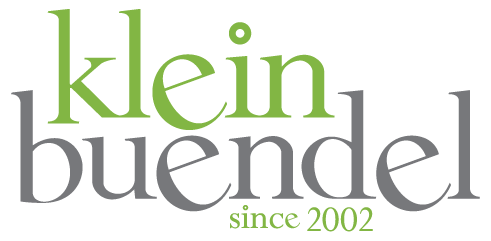2023 Research Highlights
Klein Buendel scientists and staff continued to pursue rigorous behavioral science research with numerous national and international collaborators. Our creative team also designed and engineered multiple web-based programs to positively impact the health and safety of people’s everyday lives.
In 2023, we started three new research projects with diverse collaborators. We published (or e-published ahead of print) six research papers in peer-reviewed journals and six additional publications are in press for early 2024. We presented research analyses and outcomes at six national or international conferences.
In March, Ms. Marita Brooks retired from Klein Buendel after working with Dr. Gill Woodall for over 30 years at the University of New Mexico (CASAA) and Klein Buendel (as a Senior Research Project Coordinator).
In April, we hosted Ron Borland, PhD, FASSA, Professor of Psychology and Health Behavior from the University of Melbourne in Victoria, Australia. His focal presentation was entitled, “Can we eliminate smoking without embracing harm reduction?”
In May, Dr. David Buller was a speaker at the 7th Annual Conference of the UCONN Center for Health and Social Media. His presentation was entitled, “How can public health better utilize social media? Challenges and opportunities.”
In October, Dr. Buller participated in a panel discussion on measures, data sources, and data collection strategies at the New York University Policy-Focused Implementation Science Training. He discussed his research on responsible vendor practices and training in state-regulated alcohol markets aimed at reducing DUI and other harms of over-service of alcoholic beverages.
In October, Dr. Buller also joined Carolyn Heckman from Rutgers University to present an update and preliminary findings from an investigation of state indoor tanning laws to the National Council for Skin Cancer Prevention. The presentation covered the nature of state laws, the political process that led to their passage or failure, and compliance with state regulations pertaining to minor access and other regulations on indoor tanning facilities.
In December, Dr. Gill Woodall gave a presentation to the New Mexico Immunization Coalition. The presentation reviewed the effectiveness of the TeenVac web app on improved HPV vaccine uptake.
Projects Launched in 2023
- “Feasibility and design of a novel smartphone app to deliver blood pressure-lowering inspiratory muscle strength training.” Phase I STTR grant to Klein Buendel from the National Heart, Lung, and Blood Institute (HL167375; Dr. Douglas Seals, Principal Investigator, University of Colorado). The primary Co-Investigator from Klein Buendel is Dr. Kayla Nuss.
- “Policy and training intervention in responsible marijuana sales practices to reduce the risk of selling to intoxicated customers.” A 5-year R01 grant from the National Institute on Alcohol Abuse and Alcoholism (AA031591; Dr. W. Gill Woodall and Dr. David Buller, Multiple Principal Investigators).
- “Beyond Blame: Development of an online media literacy curriculum for violence prevention.” A Phase I SBIR grant from the Centers for Disease Control and Prevention (CE003635; Dr. Barbara Walkosz, Principal Investigator).
For these new projects, we are collaborating with the following primary investigators, universities, and organizations:
- University of Colorado, Boulder (Dr. Douglas Seals)
- Pacific Institute for Research and Evaluation (Dr. Robert Saltz)
- NORC at the University of Chicago ((Mr. Jim Fell)
- Center for Media Literacy (Ms. Tessa Jolls)
2023 Publications*
- Manne S, Pagoto S, Peterson S, Heckman C, Kashy D, Berger A, Studts C, Megron R, Buller D, Paddock, Gallo, Kulik A, Frederick S, Pesanelli M, Domider M, Grosso M. Facebook Intervention for Young-Onset Melanoma Survivors and Families: Protocol for a Randomized Controlled Trial. JMIR Res Protoc. 2023 Jan 24;12:e39640.
- Ray AE, Mun E, Lewis MA, Litt DM, Stapleton JL, Tan L, Buller DB, Zhou Z, Bush HM, Himelhoch S. Cross-Tailoring Integrative Alcohol and Risky Sexual Behavior Feedback for College Students: Protocol for a Hybrid Type 1 Effectiveness-Implementation Trial. JMIR Res Protoc. 2023 Mar 20:12:e43986. doi: 10.2196/43986.
- Nuss K, Sui W, Rhodes R, Liu S. Motivational Profiles and Associations With Physical Activity Before, During, and After the COVID-19 Pandemic: Retrospective Study. JMIR Form Res. 2023 Apr 24;7: e43411. doi: 10.2196/43411.
- Nuss K, Moore K, Marchant T, Courtney JB, Edwards K, Sharp JL, Nelson TL, Li K. The combined effect of motivational interviewing and wearable fitness trackers on motivation and physical activity in inactive adults: A randomized controlled trial. J Sports Sci. 2023 Mar 25:1-11. doi: 10.1080/02640414.2023.2195228.
- Moore KN, Nuss K, Do B, Wang SD, Li K, Graham DJ, Dunton GF, Courtney JB. Motivational Profile as a Predictor of Physical Activity Among US Adults During the Early Months of the COVID-19 Pandemic: A Daily Diary Study. J Phys Act Health. 2023 Jul 28;20(10):963-970. doi: 10.1123/jpah.2022-0474.
- Saltz R, Pashcall MJ, O’Hara S, Buller DB, Woodall WG, Martinez L. Serving alcohol to an “obviously intoxicated” patron. J Stud Alcohol Drugs. 2023 Dec 11. doi: 10.15288/jsad.23-00253. Online ahead of print.
*KB investigators and staff are indicated in bold type
2023 Conference Presentations
Research progress, analyses, and outcomes were presented and disseminated by Klein Buendel scientists, staff, and their collaborators at the following national and international conferences in 2023:
- EUROGIN International Multidisciplinary HPV Congress (February)
- 44th Annual Meeting & Scientific Sessions of the Society of Behavioral Medicine (April)
- 46th Annual Scientific Meeting of the Research Society on Alcoholism (June)
- Custody and Caring: 18th Biennial International Conference on the Nurse’s Role in the Criminal Justice System (September)
- 14th Conference of the European Society for Prevention Research (October)
- 16th Annual Conference on the Science of Dissemination and Implementation in Health (December)




